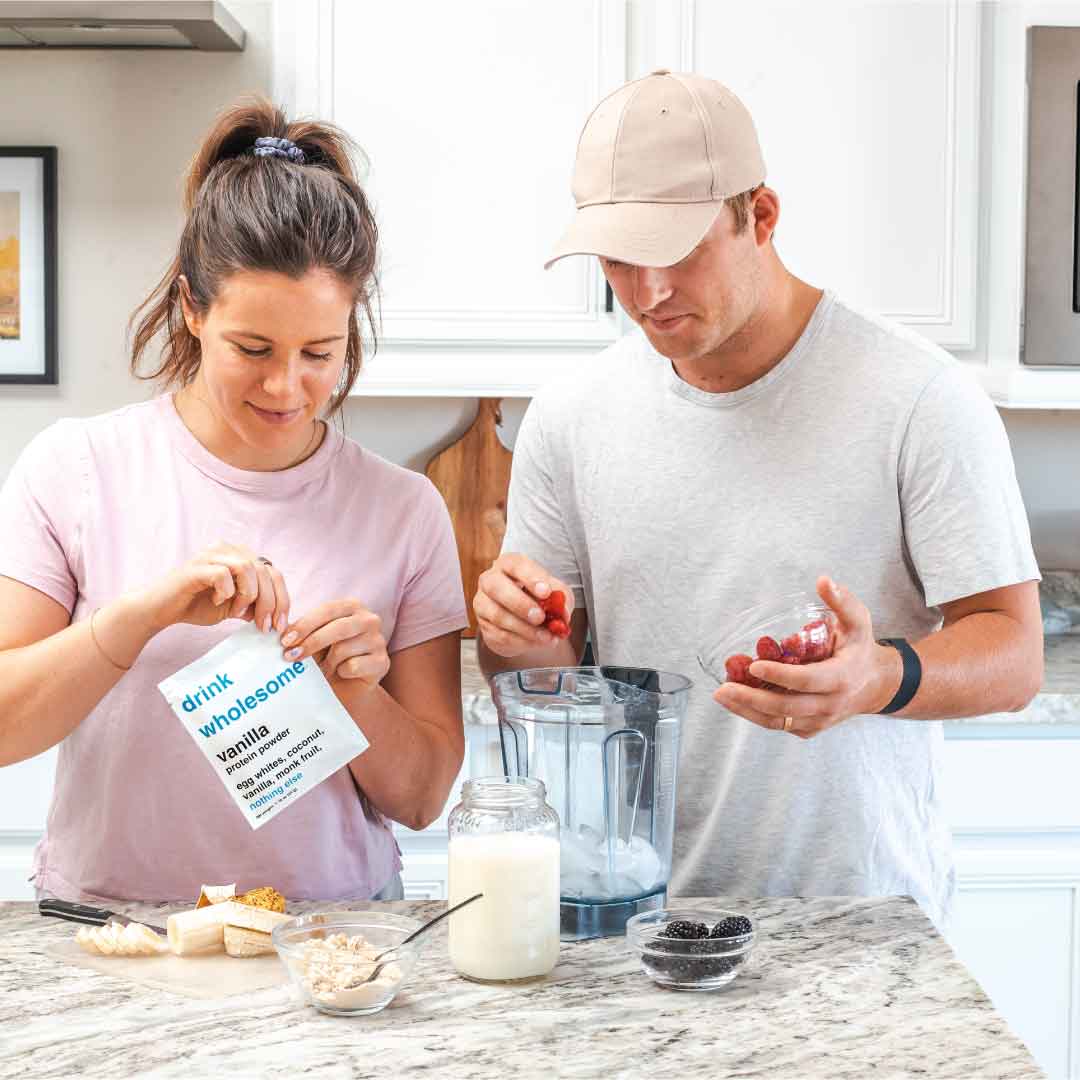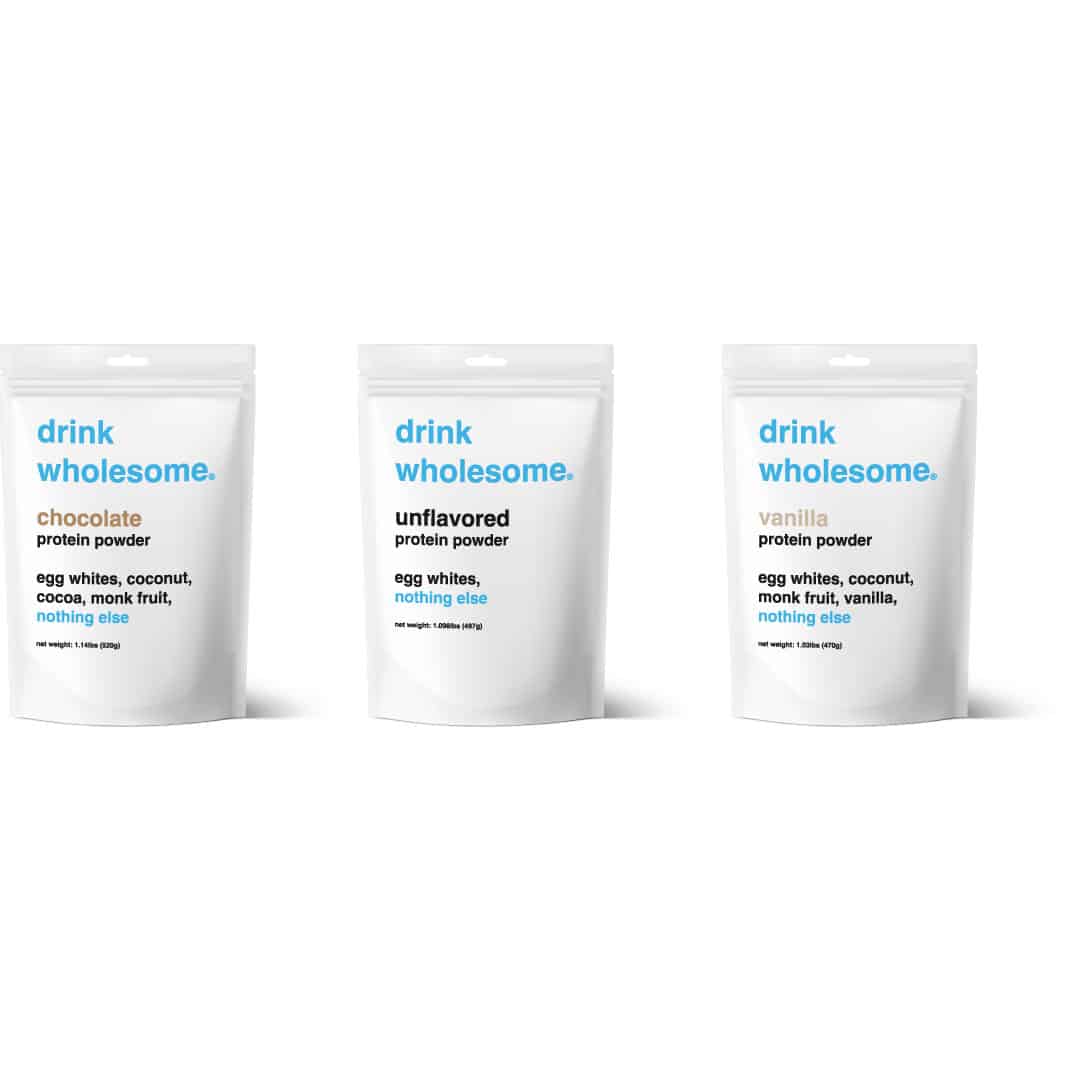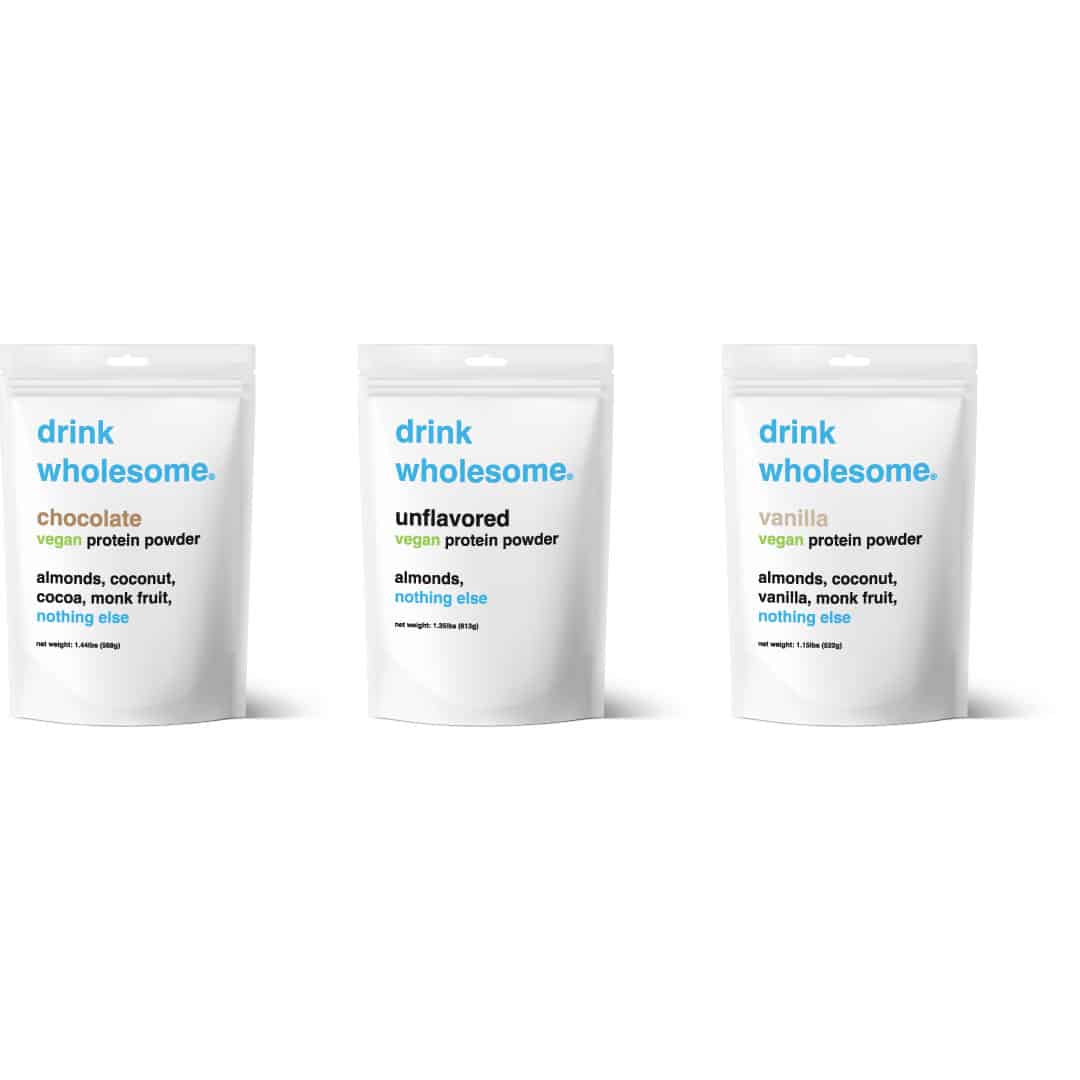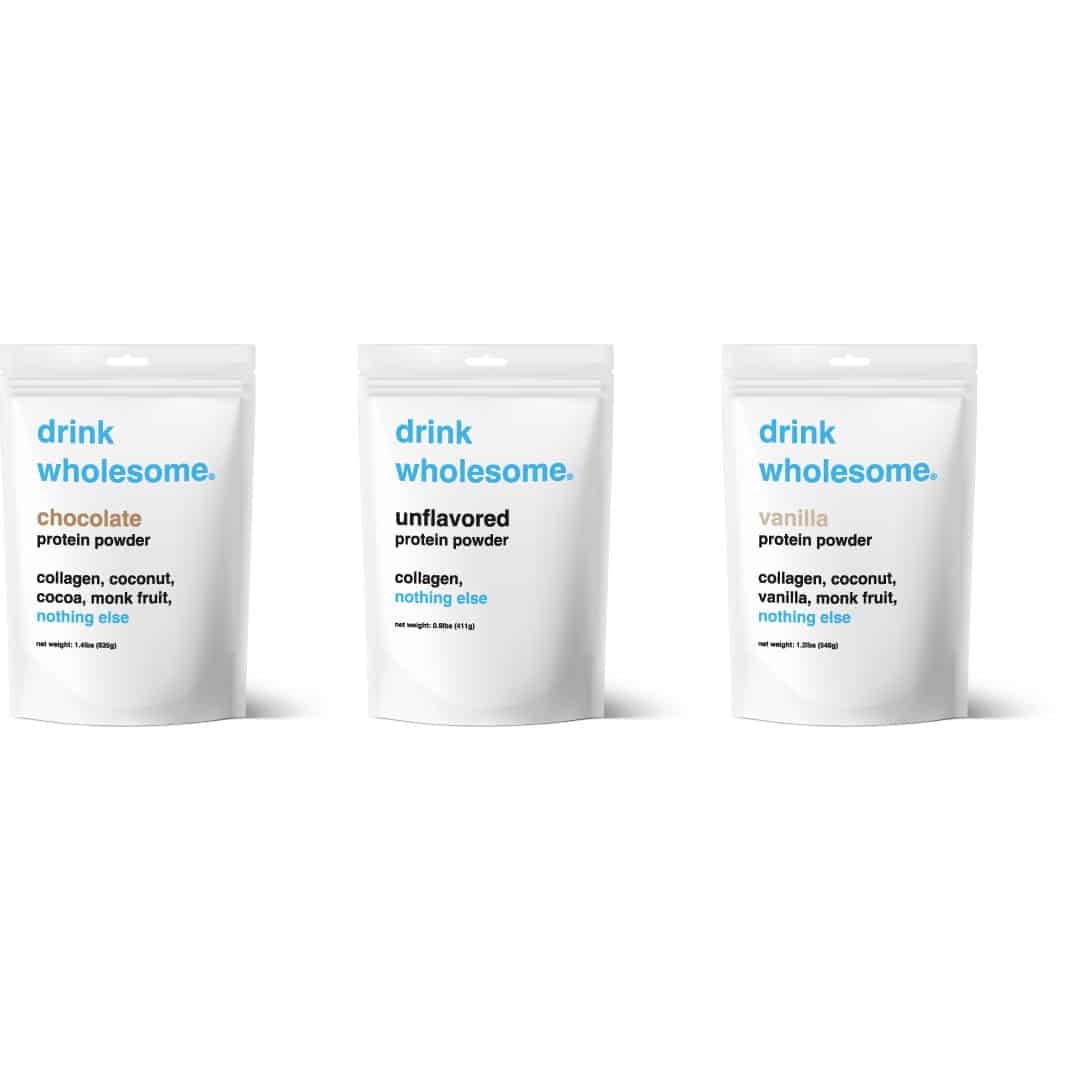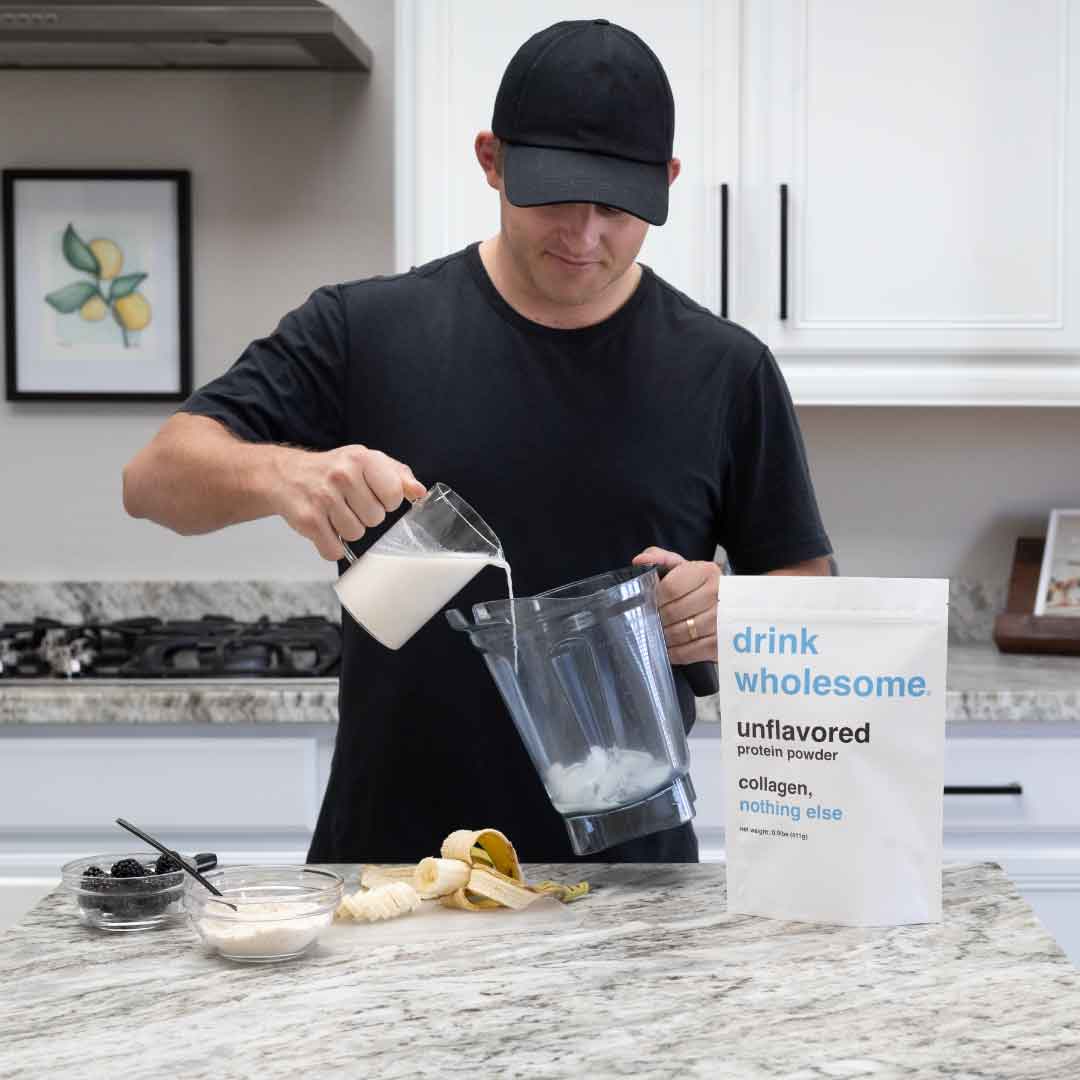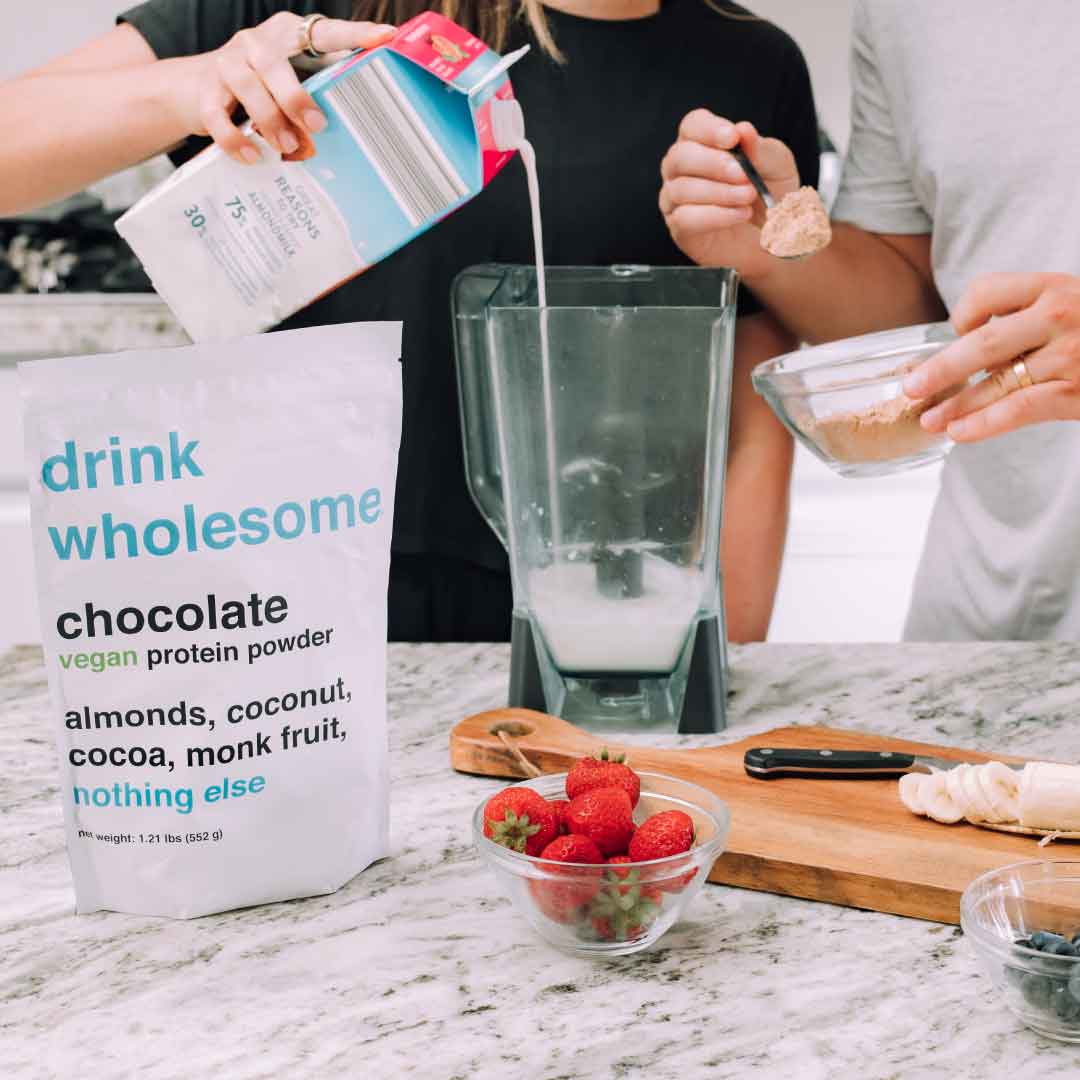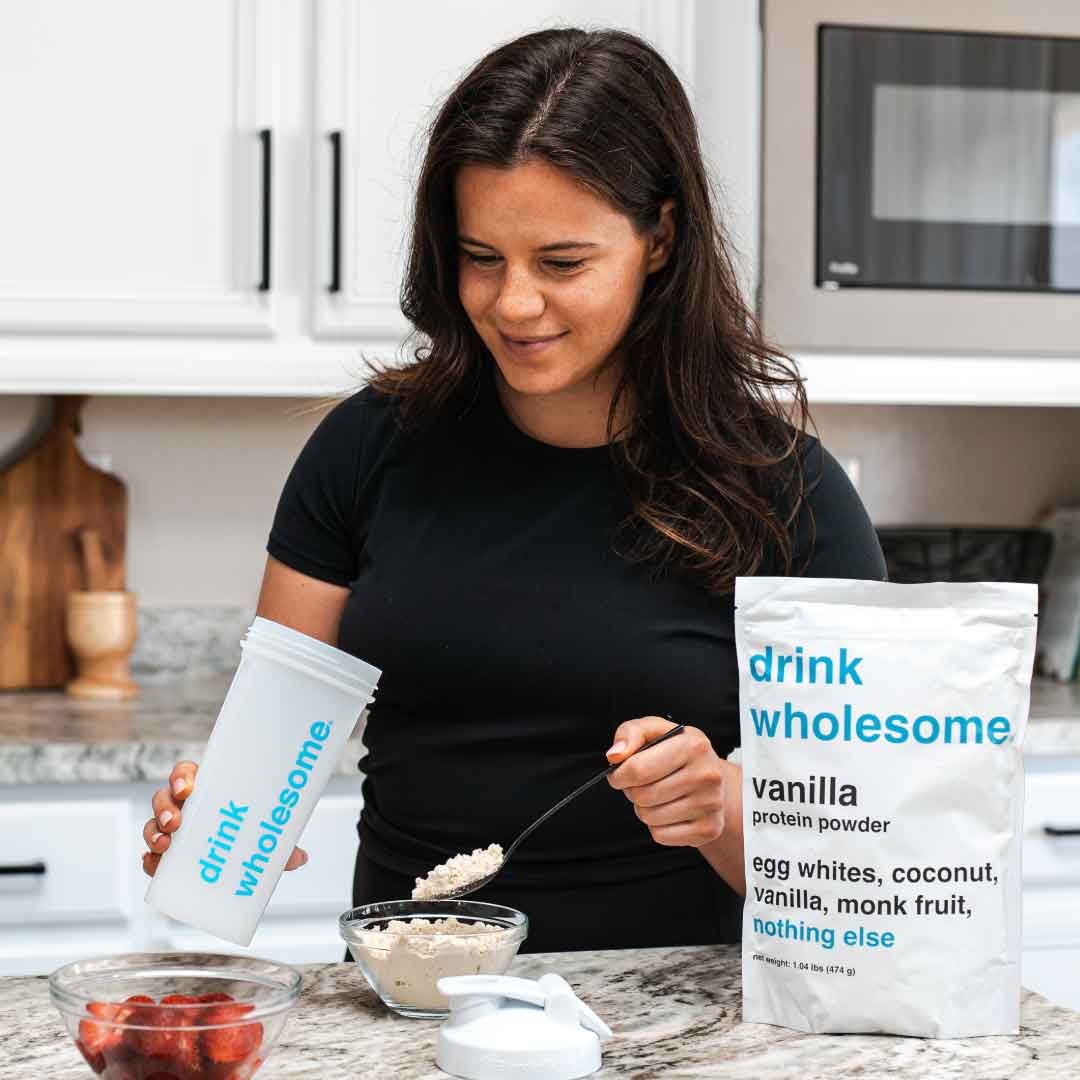What is the best protein powder for runners?
If you are looking for the best protein powder for runners, you have come to the right place. Learn how to choose a protein powder for runners that will help you easily and safely meet your protein needs. This article was written by Jack Schrupp & Brittany Adelman, RDN.
Is protein powder good for runners?
Protein is just as important for runners as it is for weightlifters as it helps with exercise recovery, injury prevention, and immune system health. Moreover, many runners, especially distance runners, do not consume nearly enough protein, which can have a serious negative impact on their performance. If you do not get enough protein when training hard, your body will break down muscle for use as fuel. This will eventually make you slower in the long run, no matter who you are.
As a runner, building and maintaining muscle mass is beneficial for several reasons. Here are a few:
– Improved running efficiency: Strong muscles can better absorb impact and propel you forward with each stride, leading to more efficient running technique.
– Reduced risk of injury: Strong muscles provide better support and stability to joints, decreasing the risk of common running injuries, such as shin splints.
– Enhanced performance: Increased muscle mass can contribute to greater power output, enabling you to run faster and with more endurance.
It is recommended that runners eat 0.4 grams of protein per kilogram of bodyweight per meal across a minimum of four meals in order to reach a minimum of 1.6 grams of protein per kilogram of bodyweight per day. This means a 150-pound runner should consume approximately 110 grams of protein per day while training.
Eating this much protein can be challenging for some runners, especially those with dietary restrictions, which is where protein powder can help. Adding a scoop of protein powder to your diet is an easy and convenient way to reach your protein goals and fill the gaps in your fueling regimen. That said, not all protein powders are created equal.
What is the best protein powder for runners?
The type of protein powder that you use is not particularly important. Any type (whey, pea, egg, etc.) can help you recover, prevent injuries, and stay healthy. What runners need to consider instead is how their protein powder makes them feel. A protein powder that makes you bloated or run to the bathroom, for example, is not going to help you achieve your fitness goals.
Digestibility is a particularly important consideration for runners because long or intense bouts of exercise can lead to a range of digestive issues like stomach pain, nausea, and diarrhea. This is why the best protein powder for runners is made with a short list of simple ingredients. The fewer and the simpler the ingredients, the less likely it is that your protein powder will upset your stomach. By the way, gastrointestinal (GI) side effects are the top reason why runners stop using protein supplements.
Here are the top protein powder ingredients runners should look to avoid to ensure that their protein powder does not upset their stomach:
Avoid food additives
Protein powders tend to contain food additives like emulsifiers, thickeners, sugar substitutes, and flavorings, which can not only upset your stomach (more about this later), but also alter the composition and function of your gut microbiome – the collection of microorganisms living in your gut. This can lead to gut dysbiosis, or an imbalance in your gut microbiota. Gut dysbiosis is a leading driver of inflammation and contributes to wide range of chronic diseases, including inflammatory bowel disease (IBD), obesity, type 1 diabetes, and colorectal cancer.
Avoid dairy-based proteins
Dairy-based proteins like whey and casein, although not an issue for everyone, can cause side effects like bloating and diarrhea. This is in part because they contain lactose, a sugar most people cannot fully digest. It is also likely related to the amount of processing required to make them. Continue reading to learn more.
Avoid protein concentrates and isolates
Most protein powders, including all whey and pea protein powders, are made from protein concentrates and isolates. Basically, protein sources like whey and peas do not contain enough protein by weight to be used as a protein supplement, and must be stripped of everything but the protein, including the enzymes, fiber, and other natural digestive aids that help you break them down. This not only makes them hard to digest, but may also affect your gut health, which plays an important role in athletic performance.
A healthy gut can improve energy metabolism by supplying muscles with oxygen and nutrients during intense exercise. It can also reduce inflammation and expedite tissue repair, helping to improve performance and expedite recovery. Choosing a protein powder that is easy to digest will thus not only make you feel better, but also help you perform at a higher level.
It is worth noting that a healthy gut also contributes to a healthy brain, which is essential for helping runners handle the mental challenges of training and racing. The connection between the gut and the brain is facilitated by the enteric nervous system, a complex neural network that communicates with your brain via the trillions of bacteria living in your gastrointestinal tract. Taking care of your gut health can contribute to better concentration, emotional stability, and resilience, all of which are crucial for runners who rely on mental toughness.
drink wholesome is the best protein powder for runners
One of the reasons why we make the best protein powder for runners is that we do not use any food additives whatsoever.
the alternative:
Protein Matrix Comprised of (Whey Protein Concentrate, Whey Protein Isolate, Calcium Caseinate, Micellar Casein, Milk Protein Isolate, Egg Albumen, Glutamine Peptides), Polydextrose, Sunflower Creamer (Sunflower Oil, Corn Syrup Solids, Sodium Caseinate, Mono- and Diglycerides, Dipotassium Phosphate, Tricalcium Phosphate, Soy Lecithin, Tocopherols), Natural and Artificial Flavor, MCT Powder (Medium Chain Triglycerides, Nonfat Dry Milk, Disodium Phosphate, Silicon Dioxide), Lecithin, Cellulose Gum, Salt, Yellow 5, Sucralose, Acesulfame Potassium, Papain, Bromelain
Food additives are hard to digest and feed gut bacteria, which release gas as they eat. As you might imagine, too much intestinal gas can cause bloating, flatulence, and stomach pain.
Partially digested food additives also cause your colon to absorb too much water, which can lead to diarrhea. Here is a list of the most common food additives in protein powder:
acacia fiber, acacia gum, acesulfame potassium, artificial flavors, ascorbic acid, aspartame, calcium carbonate, carrageenan, cellulose gum, dextrin, dicalcium phosphate, dipotassium phosphate, erythritol, gellan gum, guar gum, gum arabic, inulin, locust bean gum, maltodextrin, mono- and diglycerides, ‘natural’ flavors, rice bran extract, rice dextrin, rice hulls, rosemary extract, silica, silicon dioxide, sodium alginate, sodium bicarbonate, soluble corn fiber, soy lecithin, sucralose, sunflower lecithin, tocopherols, tricalcium phosphate, xanthan gum, xylitol, zinc oxide
Another reason why we make a good protein powder for runners is that we do not use dairy-based proteins like whey and casein. Whey and casein, which are byproducts of cheese and yogurt production, resist digestion and tend to cause digestive issues.
A final reason why you should use our protein powder after running is that we do not use protein concentrates or isolates. Nearly all other protein powders are made from one or both of these protein sources, which look nothing like real food.
Instead of using protein concentrates or isolates, we make the best protein powder for runners with whole foods like collagen, egg whites, and almonds. Protein sources like these are easy to digest and absorb. They also each bring a unique set of digestive benefits to the table.
Collagen can reduce bloating and improve digestive symptoms. Almonds are rich in prebiotic fiber and improve the composition of your gut microbiome. Egg whites are alkaline, meaning they balance the pH levels in your gut, and promote the growth of good gut bacteria.
Runners experience fewer digestive issues with our protein powders than with any other type of protein supplement. Order samples to see for yourself.
★★★★★
simple and delicious
“I’m a huge fan of drink wholesome and I’ve had all of the other flavors. I gave the unflavored a try not expecting to like it, but I was pleasantly surprised. It really doesn’t taste like much at all. I add it to my smoothie with banana and peanut butter and it’s like it’s not even there. 90 calories for 20 grams of protein is impressive too. Really good product.” – Thomas
Tips from a registered dietitian
Here is some expert advice from a registered dietitian on fueling strategies fo runners for optimal performance:
Hydrate
Staying properly hydrated before, during, and after runs is essential. Keep a water bottle with you during runs to ensure a steady intake of fluids. Electrolyte-rich beverages can be beneficial during longer runs to replenish essential minerals.
Pre-run carbohydrate intake
Incorporating carbohydrates into your pre-run meals and snacks is vital for providing the energy needed to fuel your runs. It is recommended to consume easily digestible carbohydrates, such as whole wheat toast or banana, about 30 minutes before your run. This ensures the carbohydrates are readily available as fuel during your run.
Post-run protein consumption
Protein plays a crucial role in repairing and rebuilding muscles after intense workouts. Be sure to consume a protein-rich snack or meal within 30-60 minutes after completing your run to help optimize muscle recovery. This can be a protein shake, but protein powder can also be added to smoothies, oatmeal, pancakes, and other recipes. Note that before incorporating protein powder into your diet, it is essential to know your personal protein requirements. Consider factors such as your training intensity, duration, and goals, as well as your body weight and composition.
Fueling for exercise is an all-day affair
Your overall nutrition, including meals and snacks consumed throughout the day, plays an important role in supporting your training. Regularly nourishing your body with balanced meals rich in complex carbohydrates, complete proteins, healthy fats, vitamins, and minerals ensures sustained energy levels, enhances recovery, and optimizes performance during training sessions.
“As a registered dietitian, I encourage my client athletes to prioritize consistent, well-balanced meals that provide nourishment throughout the day. Being on top of your nutrition is one of the best tools you can use to help achieve your running goals.” – Brittany Adelman, RDN
This content is not intended to be a substitute for professional medical advice, diagnosis, or treatment. drink wholesome is not intended to diagnose, treat, cure or prevent any disease.


